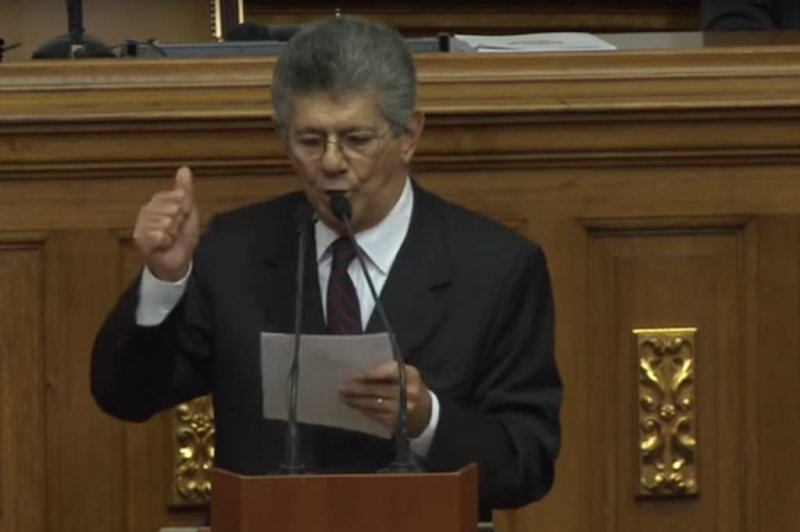National Assembly speaker Henry Ramos Allup on Tuesday said he would work toward seeking a change in government within six months. Photo courtesy of Unidad Venezuela
CARACAS, Venezuela, Jan. 7 (UPI) -- Two days after taking control of the National Assembly, Venezuela's opposition coalition has sworn in three new members in defiance of a recent court ruling.
Earlier this week, Venezuela's highest court suspended the three coalition members and one pro-government member who were elected to the National Assembly in the historic Dec. 6 elections pending an investigation of allegations of electoral fraud.
The suspension would have taken away the opposition coalition's two-thirds super-majority, which would enable it to remove judges from the Supreme Court, particularly after the outgoing United Socialist Party of Venezuela was accused of stacking the court before the change of power.
The opposition coalition, the Democratic Unity Roundtable or MUD, went on to swear in the three as members of the National Assembly.
Constitutional experts disagree on the circumstances surrounding the suspension and whether the three should be allowed to serve in the legislature during the election investigation.
On Tuesday, recently-designated National Assembly speaker Henry Ramos Allup said he would work toward seeking a change in government within six months. Although Allup did not specify how that change would occur, the Venezuelan constitution declares a recall referendum can be held once the president has served half a term and at least 20 percent of registered voters sign a petition.
President Nicolas Maduro responded defiantly.
"Let them call a recall referendum and then the people will decide," Maduro said on state television. "But if they come by any other means, the people, constitution in hand, will decide, and I'll be there defending democracy in my role as president of the Republic."
The Dec. 6 legislative election was regarded as a referendum on Maduro, who previously served as former President Hugo Chávez's vice president and became president after Chávez's death in 2013. Maduro narrowly survived a constitutionally required presidential election a month after Chávez died.















